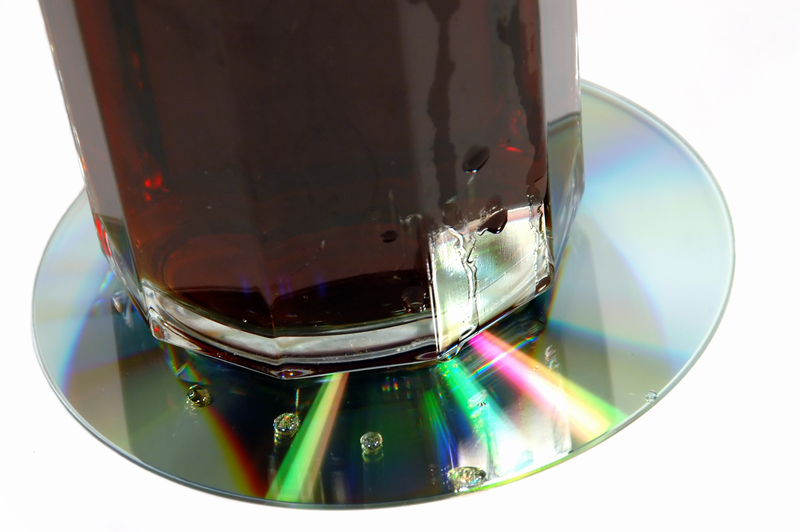Disposing of Masks and Gloves Without Polluting the Earth: A Comprehensive Guide
During health crises such as pandemics, the use of personal protective equipment (PPE) including masks and gloves skyrockets. While these products offer crucial protection, their improper disposal poses a significant threat to our environment. This article aims to provide an in-depth, Google-friendly guide on disposing of masks and gloves without polluting the Earth. By understanding the environmental impact and adopting sustainable alternatives, we can all play our part in protecting the planet.
Why Proper Disposal of Masks and Gloves Is Vital
The sudden increase in the use of single-use PPE, especially since the COVID-19 pandemic, has resulted in an alarming surge in plastic pollution. Face masks and disposable gloves are typically made from synthetic materials such as polypropylene and vinyl, which are non-biodegradable. If not managed properly, these materials can persist in the environment for hundreds of years, leading to:
- Polluted oceans and waterways
- Threats to wildlife
- Microplastic contamination
- Overloaded landfills
Recognizing the risks associated with carelessly discarded PPE is the first step toward disposing of masks and gloves in eco-friendly ways.

Understanding the Composition of PPE
To effectively dispose of masks and gloves without polluting the environment, it's essential to know what they are made of. Here's a quick breakdown:
- Surgical and Disposable Masks: Composed mainly of non-woven plastics like polypropylene.
- Cloth Masks: Made of cotton or polyester, reusable with proper care.
- N95 Masks: Multi-layered polypropylene, often with extra filtration material.
- Latex Gloves: Natural rubber, usually biodegradable.
- Nitrile & Vinyl Gloves: Synthetic materials, not biodegradable.
Knowing these types helps decide the best disposal method for masks and gloves while prioritizing environmental safety.
The Environmental Impact of Improper Disposal
Improperly discarded PPE often ends up:
- In waterways: Masks and gloves tossed on the streets easily travel to rivers and oceans via storm drains, posing a threat to aquatic life.
- As litter: Besides being unsightly, PPE litter can clog drains and contribute to flooding in urban areas.
- As microplastics: Once broken down by sunlight and weather, plastics become microplastics, contaminating soil, water, and even the food chain.
Preventing this damage starts with each of us practicing responsible PPE disposal.
Step-by-Step Guide to Disposing of Masks and Gloves Responsibly
1. Safely Remove Used Masks and Gloves
- Do not touch the front of your mask or the outside of your gloves, as these surfaces may be contaminated.
- Remove gloves by pulling them off from the inside out without touching your skin.
- Mask removal should be done by holding the ear loops or ties.
- Wash your hands thoroughly immediately after removal.
2. Avoid Flushing Masks and Gloves
Never flush masks or gloves down the toilet. These items do not break down in water and cause serious blockages and pollution in sewage systems and waterways.
3. Proper Containment: Use Designated Trash Bins
- Place used masks and gloves in a resilient trash bag, tightly sealed to minimize exposure.
- If you are sick, double-bag your waste to protect sanitation workers.
- Always dispose of masks and gloves in the general waste bin -- not recycling -- unless your locality offers specialized PPE recycling.
4. Do Not Litter
It is critical to avoid discarding PPE on sidewalks, beaches, parks, or streets. Use public garbage bins or carry a small bag for disposal if a bin isn't accessible.
5. Consider Safe Reuse or Eco-Friendly Alternatives
- Cloth Masks: Washable and reusable, making them a sustainable choice.
- Reusable Gloves: Unless used for medical-grade contexts, reusable gloves made from durable materials can be washed and maintained.
6. Participate in Specialized Recycling Programs
While most municipal recyclers do not accept masks and gloves, some organizations and private companies run take-back schemes for PPE. Examples include:
- Terracycle PPE Recycling: Specialized boxes for used PPE are available for offices, schools, and homes. These boxes ensure PPE is processed in an environmentally sound way.
- Hospital or Pharmacy Drop-off Points: Some localities provide bins specifically for used masks and gloves near healthcare facilities.
What Happens When Masks and Gloves Are Disposed of Improperly?
Improper disposal does more than just look unattractive. It leads to:
- Entanglement and ingestion: Wildlife, from birds to marine animals, can become entangled in masks or ingest fragments, often with fatal consequences.
- Microplastic crisis: Weathered masks and gloves fragment into microplastics, which infiltrate soil, water, and our food chain.
- Human health risks: Improperly disposed PPE can carry viruses or bacteria, putting sanitation workers and the public at risk.
Best Practices for Eco-Conscious Disposal of Masks and Gloves
- Choose Reusable Over Disposable: Whenever possible, opt for reusable alternatives like cloth masks or latex gloves.
- Cut Ear Loops: Before discarding a mask, cut the ear loops to prevent wildlife entanglement.
- Follow Local Guidelines: Some areas may offer specialized waste streams for PPE.
- Reduce and Educate: Minimize single-use PPE and inform others about proper disposal procedures.
Innovative Solutions and Alternatives to Traditional PPE
Biodegradable Masks and Gloves
Innovative companies are now producing PPE made from biodegradable materials such as bamboo or corn-based polymers. These break down more quickly and harmlessly in the environment.
- Bamboo fiber masks: Compostable and effective for daily use.
- Plant-based gloves: Made from biopolymers, ideal for non-medical scenarios.
Reusable PPE Options
- Washable face masks made from organic cotton or blend fabrics are both cost-effective and earth-friendly.
- Reusable rubber gloves designed for household and certain professional uses can withstand repeated cleanings, unlike single-use varieties.
PPE Recycling Programs
Check with your municipal waste management services or environmental organizations for available PPE recycling initiatives. If available, these programs ensure that masks and gloves are either safely incinerated for energy recovery or recycled in closed-loop systems.
Tips for Encouraging Responsible PPE Disposal in Your Community
- Promote Awareness: Share information on social media about the dangers of PPE litter and the importance of proper disposal.
- Organize Clean-ups: Host community events to pick up discarded masks and gloves, and educate participants on eco-friendly practices.
- Advocate for Policy Change: Encourage local authorities to install more PPE disposal bins and to adopt eco-friendly waste management protocols.
- Collaborate with Organizations: Partner with environmental NGOs and recycling firms to implement better waste solutions.
The Role of Government and Industry in Sustainable PPE Disposal
- Government Action: Stronger regulations must be in place to mandate the safe disposal of PPE and invest in waste separation infrastructure.
- Industry Innovation: Manufacturers should prioritize designing masks and gloves with biodegradable components and reusable features.
- Transparency: Clear labeling of PPE as compostable, recyclable, or standard waste helps consumers make informed decisions.
Common Myths About Disposing of Masks and Gloves
-
Myth: All masks can be recycled at home.
Fact: Most single-use masks are not recyclable in household blue bins due to contamination and material type. -
Myth: Burning masks and gloves is safe for the environment.
Fact: Incineration, unless done in highly regulated industrial settings, releases toxic pollutants. -
Myth: Biodegradable masks need no special disposal.
Fact: While better for the environment, even biodegradable PPE should be disposed of responsibly, ideally through composting.

Summary: How to Dispose of Masks and Gloves Without Polluting the Earth
- Use reusable PPE wherever possible.
- Never litter or flush PPE down toilets or drains.
- Place used masks and gloves in sealed general waste bins.
- Seek out and support PPE recycling schemes.
- Educate others and lead by example.
- Support eco-friendly PPE innovations and policies.
Conclusion: Every Action Counts
Disposing of masks and gloves without polluting the Earth is a shared responsibility. By staying informed and making small but strategic choices every day, we can significantly reduce the negative impacts of PPE waste. From choosing reusable options to advocating for biodegradable technology and recycling, each action matters. Let's all be part of the solution to keep our planet clean and healthy for generations to come.